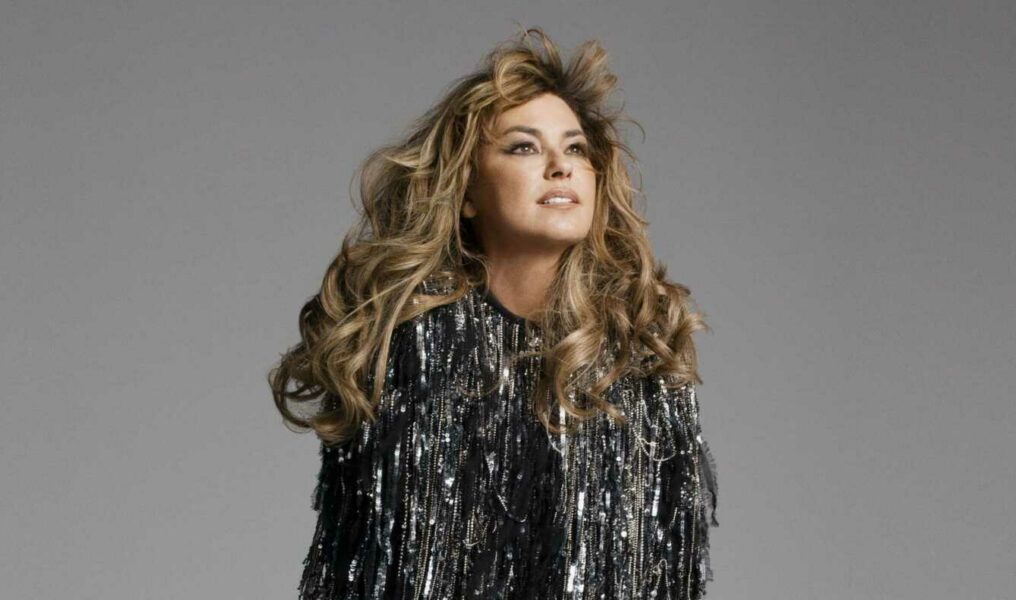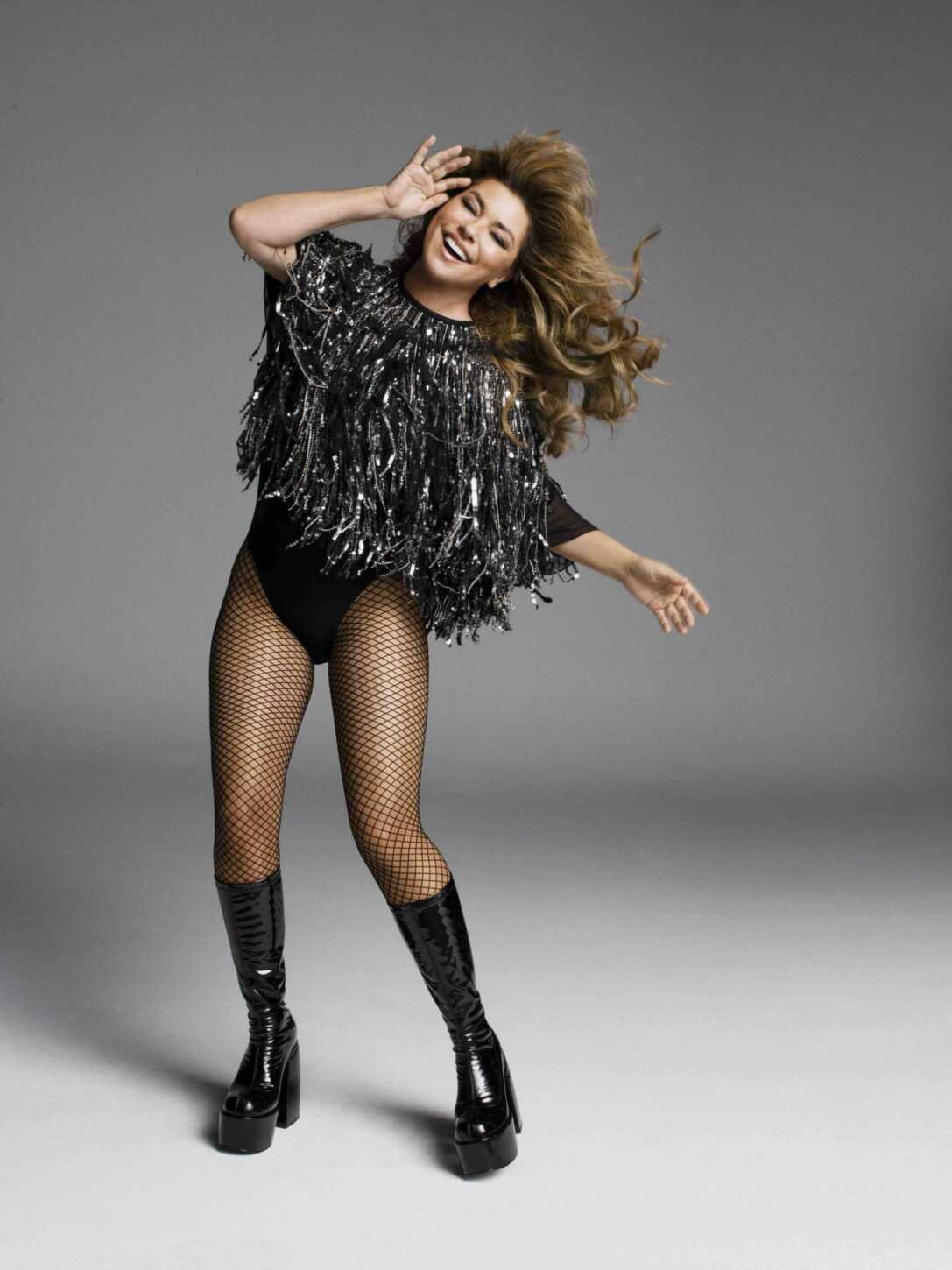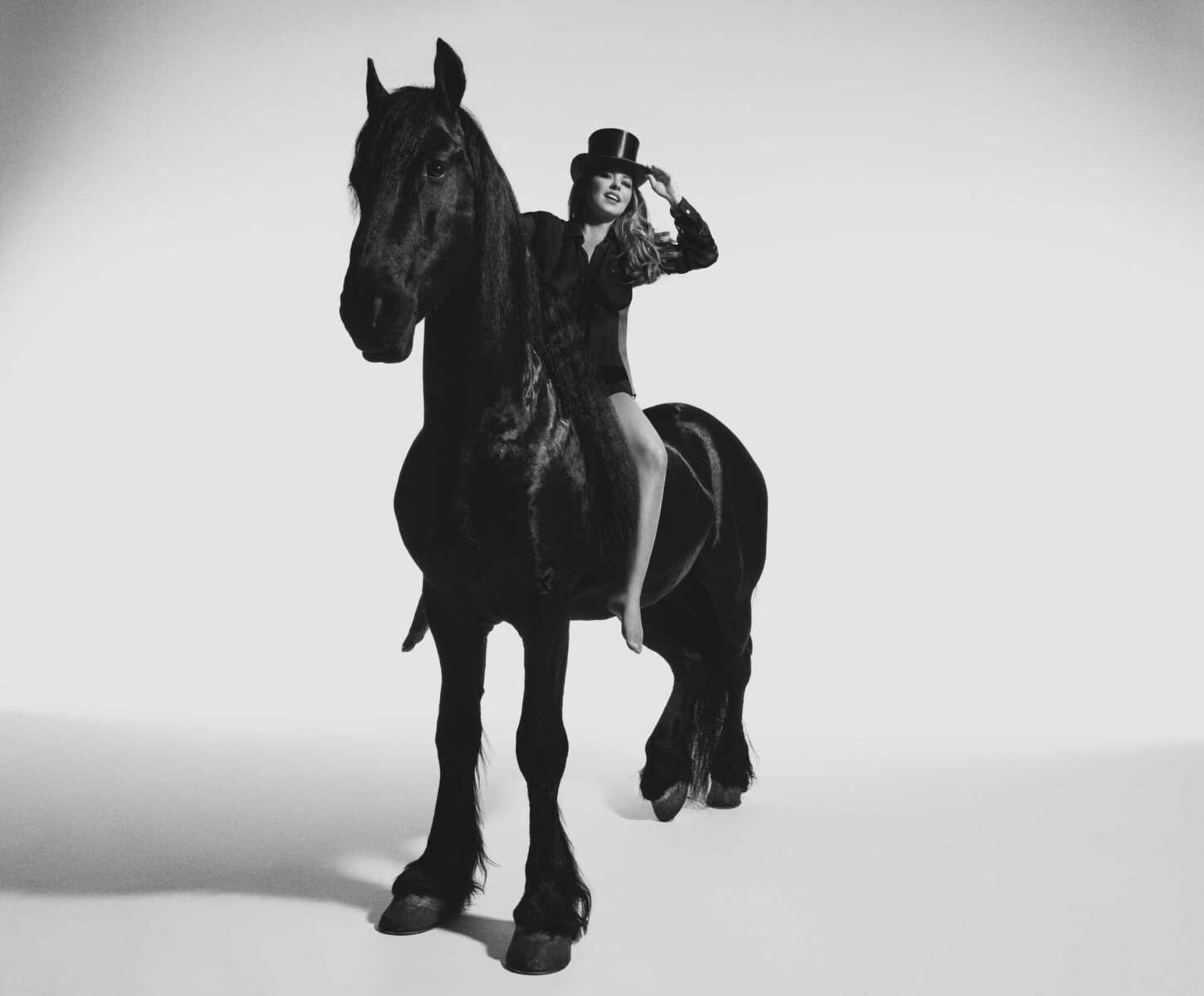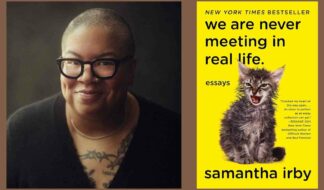Shania Twain on What LGBTQ+ Allyship Means to Her and Being Queen of Her Own Actions
The country star speaks out on building bridges through her music

The first time I connected with Shania Twain in 2017, the country-pop music icon didn’t pull any punches, saying “equality should be a no-brainer” as she spoke thoughtfully about her relationship with the LGBTQ+ community. Twain stood firm on that throughout our conversation, speaking out against supremacy (“supremacy of any sort is just poison”) and pledging to be the kind of ally we hope all gay icons will be.
In Twain’s case, she is in the same unique, bridge-building position as someone like fellow country superstar Dolly Parton — they both excite dads and drag queens, but for very different reasons.
If we’re speaking about Twain’s queer appeal, look no further than “Giddy Up!,” the first song off Twain’s sixth studio album “Queen of Me.” It’s a song that would sound right at home in some Texas yeehaw gay bar but, like her hit “Man! I Feel Like a Woman!,” could just as easily get some conservative, beer-guzzling dad to loosen up as he bellows the country bop’s fun, flirty and frankly very gay hook. (At a Shania Twain show, to which I have been, trust me when I say these things happen.)
Twain recently reconnected with me to talk about the new album, which we did. But our interview landed in places Twain herself said she appreciated as she was able to reflect on how her words — not just the ones she writes — matter.
Aside from talking about what the album’s title really means to her and admiring the progress the LGBTQ+ community has made, Twain, native to Canada, spoke candidly about how a comment she made to The Guardian in 2018 about Donald Trump — “I would have voted for him because, even though he was offensive, he seemed honest” — affected what some LGBTQ+ fans thought of her. When I asked Twain about her Trump remark, her manager requested we avoid political questions. Twain, though, said she would decide for herself whether she was going to answer the question, which she did. The “queen of me” in action.
So “Queen of Me,” let's get right to it. There's definitely a let loose vibe on this album that I think we all can appreciate after the last few years. How would you describe the spirit of this album and how you came into it?
I'm calling the “Queen of Me” album my happy album because it was literally an exercise during Covid — ’cause I wrote all the songs during Covid. And it was an exercise of just getting myself into a better frame of mind, a more positive frame of mind. Writing lyrics that would make me smile, make me laugh, make me wanna dance. It was like a self-help, wellbeing exercise to write these songs. And they ended up just being very uplifting. That's also how I narrowed down the songs, you know? I wrote three albums worth of songs during Covid ’cause I was just bored and I ended up being very creatively productive. I narrowed it down to songs that took me to that happier place.
The title itself is so you, Shania, because you are sort of the country queen of empowerment. Like you, LGBTQ+ people really have to become the master of our own universes. So I’m wondering, did the title happen to come out of any conversations that you had over the years with any LGBTQ+ people in your own life that you're close to? Or were you thinking of them in the process of naming this album or working through the songs?
I'm close to so many LGBTQ+ people. They've been part of my creative teams over the years, and they're just part of my life. You're all part of my life, you know? You're part of my inspiration. The “Queen of Me” title was directly inspired by self-empowerment. “What am I really the queen of?” I'm just the queen of myself. I'm not the queen of anyone or anything else. I shouldn't have any control over anyone else; no one should have any control over me either. And so I really felt motivated to express it for myself and to share it.
I've had people in my life going through gender confusion and gender change. Just all of the sadness that I've seen that's so unnecessary. I'm just an all-inclusive person. I believe to each his own. And we should all have the right to have that confidence in ourself to be ourself. So, on “Queen of Me,” I'm not what you tell me I am. I'm what I proclaim I am. So, don't let anyone tell you what you are.

When I last saw you on tour, there was so much gay energy, from dancers in cowboy hats and chest-baring leopard print to Elijah Wood, the trans person killing it on drums. Your audience is a mix of drag queens and conservative dads, and you are one of those rare artists who can bring polarized political communities together. How intentional on your part is it to bring a certain level of gayness to a Shania Twain show?
Let's start with this — when it comes to talent, there's two things [about] people that I want to be around when I'm in a professional or creative environment. I want people with good character, honesty and talent. And so whoever falls in there is in my circle. And so it's more about the inclusivity than anything. If I was exclusive I would say, “well, I only want this,” and I think we would all miss out on a lot of exceptional talent. My criteria is good people and talent. And any LGBTQ+ energy or people that are in my environment are there just on merit. And I think that's more valuable than actually specifically being… I don't wanna be good “for a woman.” I don't wanna be respected just ’cause I'm a woman. I wanna be respected, period. And this is where we really make our mark. And I think it's very important.
This is why “Queen of Me” is so the song: “I'm not a girl, I'm not a boy, I'm not a baby, I'm not a toy.” These are all the things I'm not, as being my label. And now let me tell you who I am. And that’s personal. I don't know if everyone will relate to that, but that's my feeling about it. I don’t want to be strong for a woman; I just want to be considered strong. And that's even in “Man! I Feel Like a Woman!” It's an internal thing. It's how I feel.
I'm thinking about your message of inclusivity, which is something we talked about at length in 2017. Then, in June 2022, you sent out a message on your socials for Pride Month saying, "I believe in equality. …And I stand with you forever." And during our conversation, you really drove that message home. I know you have since apologized for what was perceived as support for Donald Trump when you spoke with The Guardian in 2018 —
[Twain’s manager asks that we move on: “We're not gonna talk about politics on this call.”] You can ask the question, and then I can decide if I wanna answer it or not. That's fair.
What I’d like to know is how it affected you after that comment was made knowing how upset it made some members of the queer community.
So what I will say: I've always rejected anyone who makes someone feel that they are not worthy or they have to be excluded for some personal judgmental reason. And I'm not a politician. I'm not somebody that follows it well enough to speak on it. I regret speaking on it because by doing that — and this goes for everything as well — in that setting, I wasn't able to explain why and what elements, the whole picture.
So realizing after how hurtful it was to even say that, I really regretted it. I thought, “Wow. I would never wanna support a policy that would ever do that.” I would never personally do that. I think it's also good to… let's just not judge each other, you know? Let's be open like we're doing, and honest. And understand each other.
So in the greater understanding of it, anyone that criticizes the importance of the LGBTQ+ community does not belong anywhere in my support system. So no. We need more love. We need less criticism, less judgment. And that means for everything, everyone. And everyone has a right to their own opinion. I regret that anyone felt that I would ever have felt that it was OK to exclude LGBTQ+ [people].

As a gay person who has been affected by administrations and also has been a fan of yours since I was a kid, I appreciate you answering that question.
Totally. I so understand that. I think it's important, though, that we separate... our policies are… it's its own realm. And I should never have spoken on it. Period.
It sounds like you don’t go through life thinking about how big your platform is.
And that was good learning for me, as well. That's a very good point because as our world expands and our awarenesses expands, the “Queen of Me,” that was a big part of defining myself for myself. Saying, “OK, you're queen of your successes and you're queen of your failures. You're queen of your good judgment and bad judgment.” You gotta take responsibility for yourself. And the way I feel now is probably not the way I'm gonna feel in five years from now about certain things. Because the world is evolving all the time. And it's changing. And change with the right intentions is only a positive thing. We need change. We need to evolve. We need to mature.
And this has been a great… it's been a great eye-opener for me. Understanding too that, yes, it's more important to me as I get older, I care less about people's criticism. But I care more about my effect on others, and that’s just being more aware of what that really means. It’s great to talk to somebody, one-on-one, about how what one person said, even though not directed in that way at all, affected you and probably so many other people. And then in turn affected me in a very positive way. It's good. Reflection does a lot of good. We learn so much.
Is there anything else you'd like to say on that note before we move on?
No, I'm good, and thanks. I'm glad that we got to revisit the question and with a clear objective.
Let’s talk about how Pride is only just around the corner.
Pride is just around the corner. There's so many wonderful things to be said about that. I mean, so much more freedom to be gained in all realms of society. But the LGBTQ+ [community], I admire the courage because I think that the community has taken strides forward. In my own adult life, period, it's been leaps and bounds. I've got so many friends in the creative world. I mean, [fashion designer] Marc Bouwer is one of them. We've been working together for over 20 years. And there was no such community power and support then.
It didn't make a difference for our communication, one to one. We were always friends. There were never any barriers there, one to one. But I was so aware of the struggle. It's just good and very rewarding to see so much advancement. I mean, Kim Petras, for example. So 20 years ago, that's not that long ago, even 15 years ago, even 10 years ago. Would that moment have been possible? Or would it have happened? And Kim is the most — you know, should I say she or they? Correct me so that I get it right.
Kim uses she.
I wanna get it right. Thank you. So Kim is the most angelic person. Genuinely sweet, kind, and I could sense that she was at peace with herself. I hope that that is the case, ’cause that journey has… I haven't asked her about it. But I know it's been difficult. It takes courage. It's difficult. It's challenging. So I just wanna say that Kim is courageous with grace.
View this post on Instagram
When you think of your longstanding relationship with the LGBTQ+ community, what does it mean to you to be an LGBTQ+ ally now?
It's very important. I write music to communicate. I write music to relate to people. And so I'm trying to build relationships through music and friendships through music with people that I can't know in person. It’s my avenue. It's my way of reaching out. And so what I say really does matter to me, and what it means to everyone else that's receiving it. And, I mean, mostly through the music, obviously ’cause I do more music than I do talking. That's my real language, you know? Writing, and writing lyrics. Encouraging and inspiring. That's what I look to music for — for inspiration. When I'm on a tour in a show and I've got an audience there, we are on the same page. We're all from very different backgrounds. We're all different ages. We are all coming from different cultures, realities…
You are the bridge.
But music is the bridge, not me. So what I say is very important in that sense. You know, it's the music that should do all the talking.
This interview has been lightly edited and condensed for clarity.










